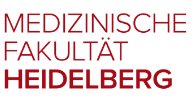EVALUATION OF NEW THERAPEUTIC STRATEGIES FOR BONE TUMORS
Bone tumors
Bone tumors represent a rare and heterogeneous group of neoplasms that include tumor types as diverse as the highly malignant osteosarcoma, the cartilage producing chondrosarcoma and the semi-malignant but locally aggressive giant cell tumor of the bone. Besides the different biological aspects of these tumors, the diversity within this group is also reflected by their localization, available treatment options and prognosis.

Osteosarcoma, the most common primary malignant bone tumor, occurs mainly in children and adolescents at the age of 10 to 20 years, while chondrosarcoma and giant cell tumors of the bone develop more frequently in older adults ranging from 40-70 and 20-45 years, respectively.
Current osteosarcoma therapy is mainly based on neoadjuvant and adjuvant chemotherapy protocols using DNA damaging agents, while surgical removal is often the only treatment option for chondrosarcoma, due to a frequently observed chemoresistance. For the semi-malignant giant cell tumors of bone, intralesional resection of the tumor is the standard therapy that is, however, associated with a very high recurrence rate ranging from 20–65% depending on the surgical technique and the use of adjuvants.

Unfortunately, the improvements of bone tumor therapy outcomes that have been achieved during the last decades are very limited. Thus, new therapeutic strategies that replace or complement conventional therapies are urgently needed. Besides the elimination of viable tumor cells, the treatment of bone defects resulting from tumor growth and surgical interventions also need to be considered within these strategies.
In several bone tumor related projects, our group aims to address these questions with the central goal to evaluate new and more effective treatment options.
Team
Prof. Dr. med. Burkhard Lehner
Head of Division
(Sektion Orthopädische Onkologie und Septische Orthopädische Chirurgie)
Head of the Institute
(Forschungsbereich Onkologie und Klinische Epidemiologie)





